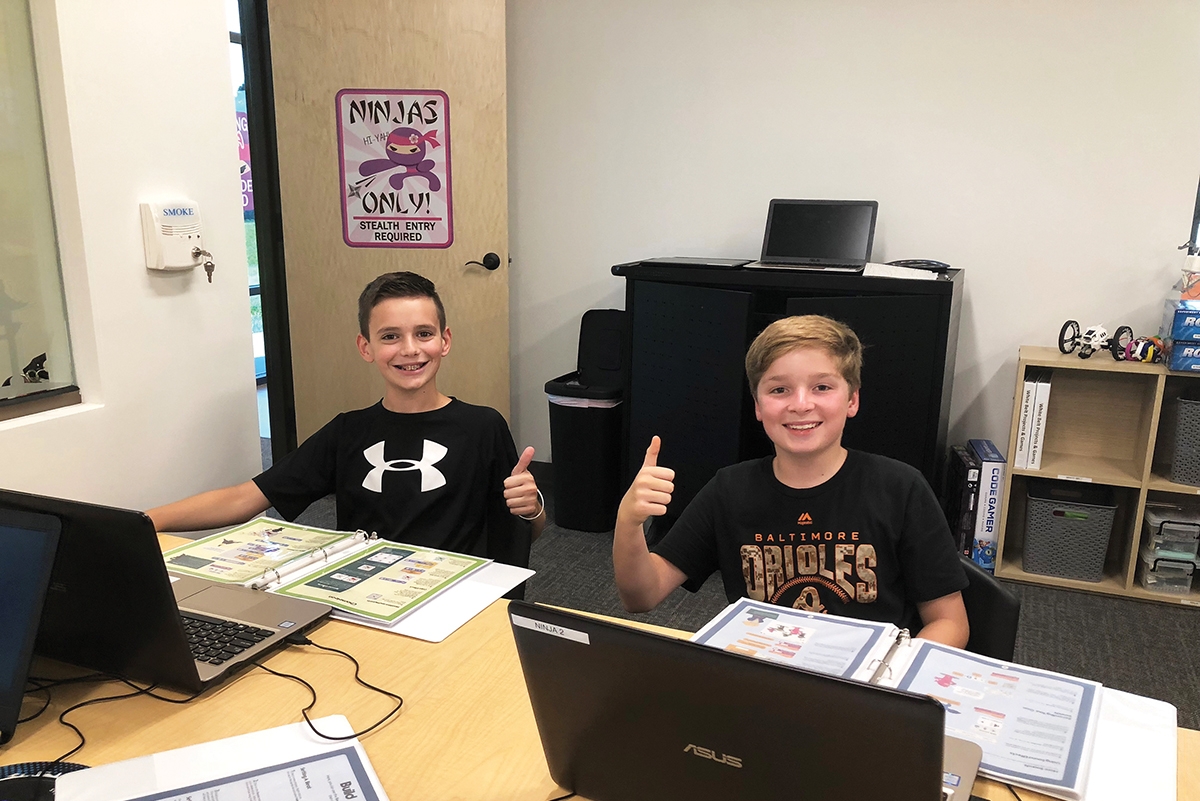Coding For Kids
5 Benefits Of Learning How To Code At A Young Age

Today’s kids and teens live in a digital world. They are constantly surrounded by smart phones, video games, websites, and even take quizzes and turn their homework in online – these technologies are all driven by software or computer programs that are created by coding, the instructions software or hardware needs to function.
Many articles about coding leave their readers perceiving computer coding or programming as a highly technical, even nerdy, activity that is only attractive to a minority of the population – even in today’s extremely technology-centric environment. However, most studies conclude that today’s coders will be the wizards or “great problem solvers” of tomorrow. In reality, coding is becoming the new type of literacy as a skill that is useful in everyday life in today’s highly digital world.
There are various benefits of learning to code at a young age, and basic coding fundamentals are no longer optional for high schoolers who will want to excel in today’s modern workforce. Every child won’t grow up to be a developer, of course, but the ability to understand how computers work (read and write code) is important in almost every industry … and becoming more so each day. By helping kids learn some computer programming, you will be giving them the gift of digital literacy, a necessary skill for tomorrow’s workforce. We believe technology makes the world go around and coding enables it.
1. Learn critical thinking: Learning to code teaches the process of thinking by learning how to communicate in a structured and logical way. Engineers and programmers use this method of thinking to solve problems. Computational thinking is a combination of math and logic, which allows one to break down a problem into single-action steps. Simply put … coding teaches a child how to problem solve, and the end result is a paradigm shift in how he or she looks at the world and how it works.
2. Use creativity: Children have very creative and fluid minds that allow them to think “outside of the box.” When you show children that coding can be fun and that they can use their creativity to create a story, build a game, and design digital artwork, they see that there are endless ways to problem solve. This can inspire kids to grow. Digital storytelling can help set kids up for success in both written and verbal communications in school.
3. Build confidence: One of the best feelings in the world is knowing that you accomplished something, or that you have the ability to analyze and build something really complex. When your code works bug-free and you created something great, a happy dance is born. Learning to code gives children that excitement and empowerment, which in turn builds confidence.
4. Exercise teamwork: When kids learn to code, they are typically in an environment where they can learn together and build projects in a group setting. While the kids work with each other to solve a problem, they learn how to communicate in a team environment, have healthy discussions, and most importantly, learn how to compromise. It is so important for kids to find their passion and their people.
5. Prepare for future jobs: The current generation, our children, will need to learn digital literacy in order to be competitive in the future job market. Not knowing how to code will be comparable to not knowing how to read or solve a math equation. Most jobs in the future will require the knowledge of basic IT skills, as even retail and food worker jobs require the use of technology and computers. Coders are well-paid and highly sought-after in the current market, and opportunities for these skills will only expand in the future.
Andrea Dabal and Michelle Preddice
The owners of Code Ninjas. Contact them for more information about how coding can help your child or to get your child started on his or her coding path.
- www.codeninjas.com/locations/nc-wake-forest
- 919-296-8330

